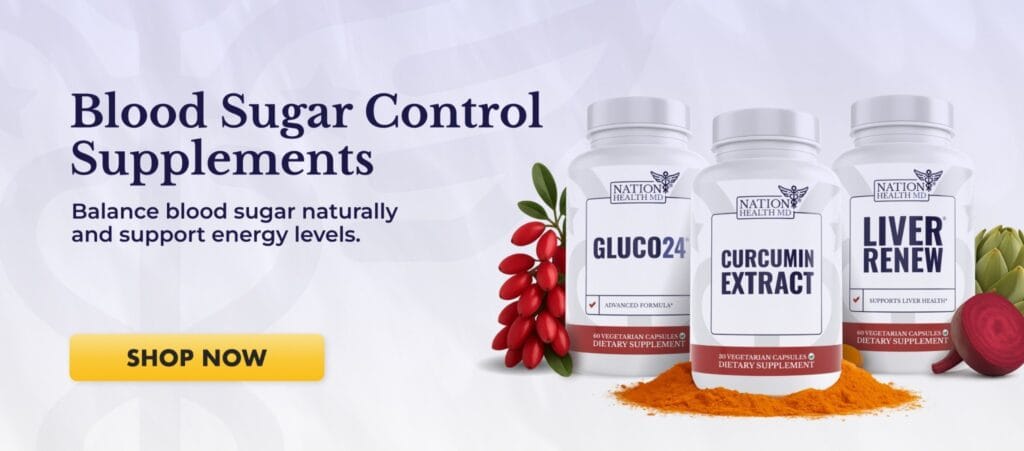Supplements for Cardiovascular Health
Medically reviewed by our experts


Supplements for cardiovascular health can provide additional support alongside lifestyle modifications. A nutritious diet and regular physical activity remain the foundation of heart wellness, but specific heart health dietary supplements may offer extra benefits.
These supplements should complement, not replace, healthy habits. This article explores evidence-based options for supporting heart function and maintaining cardiovascular wellness.

Key Article Findings
- Quality supplements may support heart health alongside healthy lifestyle choices
- Omega-3s, CoQ10, and B vitamins show potential for cardiovascular support
- Consult healthcare providers before starting any new supplement regimen
Understanding Cardiovascular Wellness and Supplements
Your cardiovascular system works constantly to deliver oxygen and nutrients throughout your body. Many factors affect heart function, including diet, physical activity, stress levels, sleep quality, and genetics. Heart health supplements fit into this bigger picture as potential supporting players.
Dietary supplements can fill nutritional gaps that might impact cardiovascular wellness. However, they work best when combined with heart-healthy habits like regular exercise and a diet rich in fruits, vegetables, and whole grains.
When considering supplements, look for products that:
- Have third-party testing verification
- List active ingredients clearly
- Provide transparent dosage information
- Come from reputable manufacturers
The absorption time varies among supplements. How long does it take for vitamins to digest depends on the specific formulation and your individual body chemistry. Some water-soluble vitamins begin absorption within 30 minutes, while fat-soluble compounds may take several hours.
For optimal health benefit, integrate supplements as part of a complete approach to heart health that includes medical check-ups, stress management, and positive lifestyle choices.
Omega-3 Fatty Acids and Fish Oil
Omega-3 fatty acids have substantial research supporting their role in cardiovascular wellness. These essential fats include three main types:
- EPA (eicosapentaenoic acid): Primarily from fatty fish
- DHA (docosahexaenoic acid): From fatty fish and algae
- ALA (alpha-linolenic acid): From plant sources like flaxseeds
These fatty acids may help maintain healthy triglyceride levels already in the normal range. They may also support healthy blood pressure and promote proper blood flow.
Research suggests omega-3s work best when consumed as part of a diet low in saturated fats. Fish oil supplements typically provide both EPA and DHA in concentrated form. Studies often use dosages between 1-3 grams daily of combined EPA and DHA.
When selecting fish oil supplements:
- Look for products specifying EPA and DHA amounts
- Choose options tested for contaminants
- Select supplements with added antioxidants
For vegetarians, algae-based omega-3 supplements offer a plant-based alternative containing DHA and sometimes EPA. These food supplements for the heart support cardiovascular practices alongside a balanced diet rich in whole foods.
Coenzyme Q10 (CoQ10)
Coenzyme Q10 (CoQ10) plays a key role in cellular energy production, particularly in high-energy tissues like your heart. This naturally-occurring compound exists in every cell but levels often decline with age, raising interest in its potential as a cardiovascular supplement.
CoQ10 functions as:
- A component in cellular energy production
- An antioxidant protecting heart tissue
- A supporter of overall heart function
This supplement comes in two forms: ubiquinone and ubiquinol (the reduced form). Ubiquinol may offer better absorption, especially for adults over 50. Clinical trials have studied dosages ranging from 100-300 mg daily.
Factors affecting CoQ10 absorption include:
- Taking it with fat-containing meals improves uptake
- Divided doses may enhance absorption
- Soft gel formulations often provide better bioavailability
Nation Health MD’s CL Switch contains a blend of heart-supporting ingredients including Bergamot Extract, Red Yeast Rice Powder, and Berberine Hydrochloride Extract that work alongside natural compounds like CoQ10 to support cardiovascular wellness.
B Vitamins for Heart Health
B vitamins support cardiovascular wellness through several important pathways. These nutrients, particularly B6, B12, and folate, contribute to heart health in multiple ways.
Vitamins for heart health help:
- Convert food into energy for cardiac function
- Form red blood cells that transport oxygen
- Maintain normal homocysteine levels
Homocysteine is an amino acid that, when elevated, has been linked to risk factors for cardiovascular issues. B vitamins help maintain this substance within normal ranges.
Good food sources include:
- Whole grains
- Leafy greens
- Poultry and fish
- Dairy and eggs
While most people get sufficient B vitamins from food, certain groups may benefit from supplementation, including adults over 50, those limiting animal products, and people with specific health conditions.
Typical supplement dosages align with Daily Values: approximately 1.7 mg for B6, 2.4 mcg for B12, and 400 mcg for folate. Many breakfast cereals and grain products contain added B vitamins as well.
Plant-Based Compounds and Antioxidants
Plants contain thousands of beneficial compounds that may support cardiovascular wellness. These natural substances often function as antioxidants, potentially protecting cells from damage.
Polyphenols from colorful fruits and vegetables may support vascular health:
- Resveratrol (grapes, berries)
- Quercetin (apples, onions)
- Anthocyanins (blue/purple foods)
Plant sterols and stanols, naturally present in small amounts in many plants, may help maintain healthy cholesterol levels. These compounds can be found in specially fortified foods or as cardio health supplements.
The best approach combines supplements with a heart-healthy diet rich in fruits, vegetables, whole grains, and legumes. This combination provides a wide spectrum of plant compounds that work together effectively.
Research suggests these plant-based substances may help support:
- Healthy blood vessel function
- Normal inflammatory responses
These compounds are available as concentrated supplements, though obtaining them through whole foods provides additional fiber and nutrients. Learning about the best supplements for lymphatic system health can also contribute to better circulation, as these systems work closely together.
Magnesium and Other Minerals
Magnesium plays a vital role in cardiovascular health. This essential mineral supports:
- Normal heart rhythm
- Proper muscle function
- Healthy blood pressure levels
Your body needs balanced amounts of several minerals, including magnesium, potassium, and calcium, for optimal heart function. These minerals work together to regulate the electrical signals controlling heartbeats.
Food sources of magnesium include:
- Dark leafy greens
- Nuts and seeds
- Whole grains
- Beans and lentils
Many adults may not consume enough magnesium through diet alone. Supplementation may benefit those with low dietary intake or increased needs.
Common magnesium supplements include magnesium citrate, glycinate, and oxide, with typical dosages ranging from 200-400 mg daily. The citrate and glycinate forms generally offer better absorption. How the circulatory system works with the digestive system affects how well your body utilizes these minerals.
Evaluating Supplement Quality and Safety
Not all supplements for cardiovascular health are created equal. Quality, purity, and potency can vary widely between products.
Look for third-party certifications from organizations such as:
- USP (United States Pharmacopeia)
- NSF International
- ConsumerLab
Read labels carefully for:
- Active ingredient amounts
- Potential allergens
- Expiration dates
Quality manufacturers typically follow Good Manufacturing Practices (GMP), test products for purity, and provide clear information about sources. These practices help ensure you get what you pay for in a food supplement for the heart.
Always discuss supplements with healthcare providers, especially if you take prescription medications, have existing health conditions, plan surgery, or are pregnant or nursing.
Some supplements may interact with medications for heart failure, blood pressure, or those affecting blood clots. Your healthcare provider can help assess potential risks based on your specific situation.
Conclusion
Supplements for cardiovascular health can be valuable tools when used as part of a comprehensive approach to wellness. While these products may offer support for heart function, they work best alongside healthy eating, regular physical activity, stress management, and appropriate medical care.
Always consult healthcare providers before starting any new healthy heart supplement regimen, particularly if you have existing heart conditions or take medications that could interact with supplements.
Absorption times vary by vitamin type. Water-soluble vitamins (B, C) may begin absorbing within 30 minutes, while fat-soluble vitamins (A, D, E, K) require dietary fat and may take several hours for full absorption.
Omega-3 fatty acids, CoQ10, B vitamins, and plant-based antioxidants show promising research for supporting cardiovascular health. Always consult healthcare providers before starting any supplement.
Supplements alone cannot prevent heart disease. They may support heart health as part of a comprehensive approach that includes healthy diet and exercise, not smoking, and managing conditions like high blood pressure.
While many supplements are well-tolerated, some may cause side effects or interact with medications. Start with lower doses, monitor for reactions, and discuss with healthcare providers.
Sunkara, A., & Raizner, A. (2019). Supplemental vitamins and minerals for cardiovascular disease prevention and treatment. Methodist DeBakey Cardiovascular Journal, 15(3), 179.
Li, J., Et Al. (2022). Role of omega-3 fatty acids in the prevention and treatment of cardiovascular Diseases: A consensus statement from the Experts’ Committee Of National Society Of Cardiometabolic Medicine. Frontiers in Pharmacology, 13.
Office of Dietary Supplements – Omega-3 fatty acids. (n.d.).
Zozina, V. I., Et Al. (2018). Coenzyme Q10 in cardiovascular and Metabolic Diseases: Current state of the problem. Current Cardiology Reviews, 14(3), 164–174.
Miao, Y., Et Al. (2023). The effect of B-vitamins on the prevention and treatment of cardiovascular diseases: a systematic review and meta-analysis. Nutrition Reviews, 82(10), 1386–1401.
Castro, C. (2022). Editorial: Natural Plant Antioxidants and Cardiovascular Disease. Frontiers in Physiology, 13.
Iqbal, I., Et Al. (2023). Plant polyphenols and their potential benefits on cardiovascular health: a review. Molecules, 28(17), 6403.
Shaito, A., Et Al. (2020). Herbal medicine for cardiovascular diseases: efficacy, mechanisms, and safety. Frontiers in Pharmacology, 11.
Popular Articles
Advertisement. This site offers health, wellness, fitness and nutritional information and is designed for educational purposes only. You should not rely on this information as a substitute for, nor does it replace, professional medical advice, diagnosis, or treatment. If you have any concerns or questions about your health, you should always consult with a physician or other health-care professional. Do not disregard, avoid or delay obtaining medical or health related advice from your health-care professional because of something you may have read on this site. The use of any information provided on this site is solely at your own risk.







